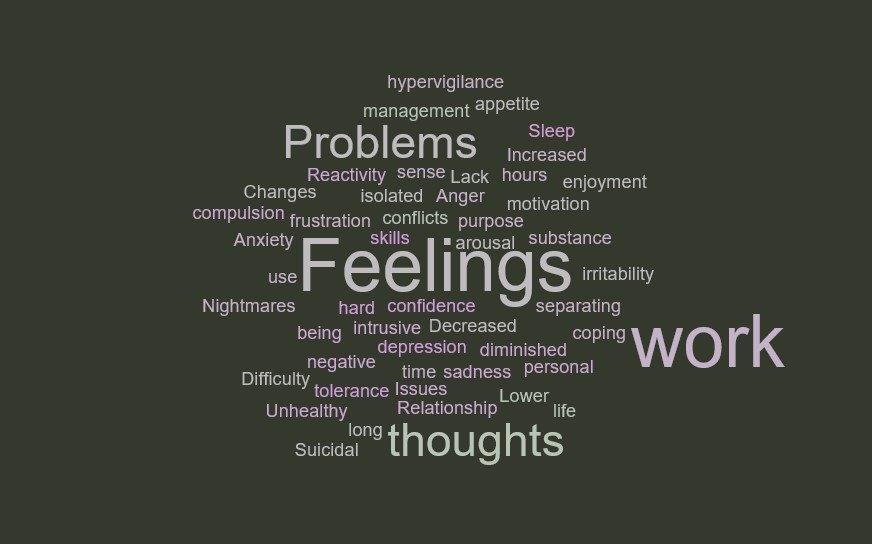September 29, 2020

Chief Debora Black
Prescott (AZ) Police Department

Chief Debora Black
Prescott (AZ) Police Department
Thus far, 2020 has produced indisputable evidence of the perils facing law enforcement in the United States and around the world. A global pandemic has taken more than 200,000 lives in the United States including more than 200 deaths of those serving in law enforcement and corrections services. [1] Adding to that toll are stressors created by natural disasters, peaceful protests, civil unrest, riots, and ambush attacks on officers which, of late, occur on a daily basis. The pressures on law enforcement agencies, and the remarkable men and women who lead them have never been greater, and the list of those leaving their agencies, not of their own volition or timing, continues to grow. As a member of this small group of stalwart leaders, I wonder, when was the last time someone asked, “How you are doing? Chief, who has your back?”
From a physical, emotional, and cognitive perspective, this is much more than a rhetorical question. At a time when so much is expected of law enforcement leadership—from the community, your agency, elected officials, and the media—taking care of yourself is likely to be very low on your priority list. With so many demands for your time and attention, what does your self-care even look like? While you may be able to recognize the impacts of anxiety and distress in others, can you recognize when the same stressors have pulled you off balance? And are you willing to take the necessary steps to restore equilibrium and invest in your physical, mental, and emotional health?

The Basics
Starting with the obvious, any self-care regiment requires healthy nutrition, sufficient hydration, regular exercise, and quality sleep. While interrelated, sleep deprivation can be most damaging to emotional, physical, and cognitive health. [2] Improving one’s sleep quality will also serve as a catalyst for other areas of self-care due to positive effects on concentration, motivation, and mood. Avoiding a diet high in fat, sugar and saturated fats, remaining hydrated, and committing to an exercise routine will improve your ability to manage stress and improve cognitive functioning in the short term, while also having long term benefits of reduced risk of cardiovascular disease, hypertension, and type 2 diabetes.
Although alcohol is often used as a stress reliever for many individuals to unwind or relax, it may indicate that your other coping mechanisms aren’t sufficient. On the other end of the spectrum, overreliance on caffeine to fight fatigue or achieve alertness may work in the short term but is a poor substitute for high quality sleep. Much has been written about the positive benefits of meditation, relaxation, and breathing techniques as a daily practice or to calm overwhelming emotions in the moment. Incorporating mindfulness into your day can produce immediate improvements to your emotional, mental, and physical health. [3]
“What makes night within us may leave stars.” — Victor Hugo
Stressors
The volume and magnitude of stressors law enforcement executives are facing in 2020 are unprecedented; the condition is aggravated by the sense that many of these events are out of our ability to influence or control. Normal reactions to events can be overwhelming and powerful, but as leaders, such emotions are often contained, sometimes even repressed. Bottled-up emotions rarely remain so, and, over time may lead to serious emotional imbalance.
The current environment poses a threat to exacerbate two characteristics common to individuals in our profession: perfectionism and overidentification of one’s role. In the positive sense, perfectionism involves setting high (yet achievable) personal standards, a preference for order and organization, a sense of self-satisfaction, a desire to excel, and a motivation to achieve positive rewards. Maladaptive perfectionism, however, involves harmful qualities of unrealistically high standards, intense ruminative concerns over mistakes, perceived pressure from others to be perfect, and compulsive doubt. Overidentification of one’s role is a byproduct of maladaptive perfectionism, which can be damaging to relationships both inside and outside of the workplace. Overidentification with your role as police chief, sheriff, or director can lead to underidentification with the other important life roles you may have of being a parent, spouse/partner, and/or friend. Those close to you are often exposed to the same anxieties, fears, and disequilibrium as you, along with the added stress of feeling powerless to help. These are the people who deserve your best, not whatever is left at the end of the day.
“It is not the critic who counts; not the man who points out how the strong man stumbles, or where the doer of deeds could have done them better. The credit belongs to the man who is actually in the arena, whose face is marred by dust and sweat and blood; who strives valiantly; who errs, who comes short again and again, because there is no effort without error and shortcoming; but who does actually strive to do the deeds; who knows great enthusiasms, the great devotions; who spends himself in a worthy cause; who at the best knows in the end the triumph of high achievement, and who at the worst, if he fails, at least fails while daring greatly, so that his place shall never be with those cold and timid souls who neither know victory nor defeat.” — Theodore Roosevelt
As law enforcement leaders, we carry the immense responsibility of protecting our folks, keeping our communities safe, and leading in a way that reflects the very best of our noble profession. The overused but appropriate metaphor of putting your mask on first before helping others resonates in this time of extreme challenge. Commit to practices which help you manage stress, achieve balance, and model self-care behaviors for others. Remember, when we are not feeling our best, we cannot be our best for anyone else. Don’t forget to wear your mask first.
10 Ways to Practice Self-Care
1. Learn self-compassion so that you can practice compassion toward others.
2. Reestablish (or identify) coping skills that have worked for you in the past.
3. For every negative emotion you experience, think of three positive emotions.
4. Connect with others to talk about anything except for work. Leave work at work.
5. Minimize your exposure to traditional news and social media.
6. Disconnect from technology whenever possible.
7. Recognize when it is time to seek professional help.
8. Foster a life outside of law enforcement—exercise fun hobbies, socialize with family and friends, or learn a new skill.
9. Develop healthy physical habits—hiking, swimming, walking—anything to get your blood flowing.
10. Practice meditation and mindfulness. Breathe.
If you are struggling, there are a multitude of resources available to help you, your family members, and members of your agencies. [4]
- Cop2Cop: Cop2Cop is a confidential, 24/7 helpline for law enforcement officers and their families. Call 866-COP-2COP.
- Safe Call Now: Safe Call Now is a confidential, 24/7 crisis referral service that can connect public safety employees with other officers, public safety professionals, or mental health professionals. Call 206-459-3020.
- Crisis Text Line: Crisis Text Line counselors are available 24/7 to offer free, confidential services to all emergency responders. Text BADGE to 741741.
- CopLine: CopLine is a confidential, 24/7 resource for active or retired police officers and their families to connect with trained, retired law officers for additional support. Call 800-COP-LINE.
Don’t forget to put your mask on first.
Debora Black currently serves as Police Chief in Prescott, Arizona. Prior to that, she was Chief of Police for the City of Glendale, Arizona. Chief Black has nearly 40 years of experience in law enforcement and is currently pursuing a master’s degree in Clinical Mental Health Counseling with a goal of becoming a Licensed Professional Counselor.
The opinions expressed are the author’s own and may not represent the official position of the National Policing Institute.
Sources:
1https://www.odmp.org/search/incident/covid-19
Disclaimer: The points of view or opinions expressed in this article are those of the author(s) and do not necessarily represent the official position of the National Policing Institute.
Written by

Chief Debora Black
Prescott (AZ) Police Department
Strategic Priority Area(s)
Topic Area(s)
For general inquiries, or to submit an essay for consideration, please contact us at info@policefoundation.org.
Share
Strategic Priority Area(s)
Topic Area(s)
For general inquiries, please contact us at info@policefoundation.org
If you are interested in submitting an essay for inclusion in our OnPolicing blog, please contact Erica Richardson.
Share
